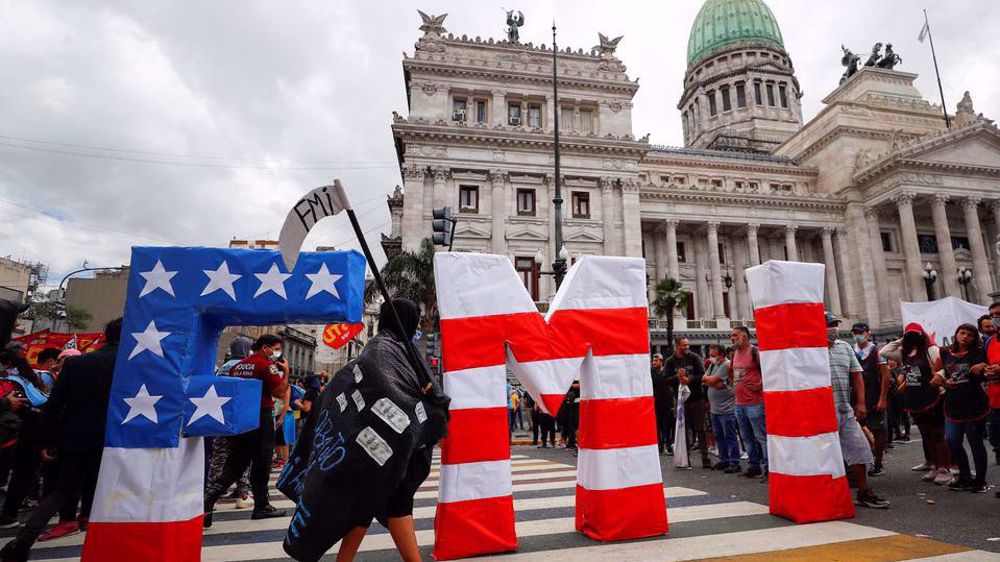Argentinians have taken to the streets of the capital, Buenos Aires, to protest against austerity measures imposed by the government following a deal with the International Monetary Fund (IMF).
Protesters marched across Plaza de Mayo square in response to a call by the Piquetera Unit on Thursday, holding banners and placards reading: ‘Down with adjustment of Massa and IMF’ and ‘Against Milie’s offensive and the right’, in reference to Economy Minister Sergio Massa and far-right presidential candidate Javier Milei.
The demonstrators called for measures against inflation, as about 40 percent of the population currently lives in poverty.
“The children are hungry and cry because they don’t have enough to eat. What is happening is unfortunate and the state is totally absent from what we face every day. The money is not enough, we don’t make it to the end of the month,” Valeria Rodriguez, a mother of four children, said.
The government’s justification for the austerity-motivated cuts is that they are necessary for welfare payments and other subsidies, following an agreement with the IMF to reduce the fiscal deficit.
“There is a total agreement with the International Monetary Fund, which asks for more adjustment and that is what this government is giving. It was the 22 percent post-election devaluation,” Maria Celeste Fierro, an MST activist, explained.
Argentina’s Consumer Price Index (CPI) likely rose 11.8 percent in August, after a significant 22 percent peso devaluation that followed Milei’s victory in the country’s primary election.
As a result, Argentina’s annual inflation rate increased to 124.4 percent, its highest level since 1991.
The main driver of rising prices was the food category, which saw the highest jump of 15.6 percent last month.




